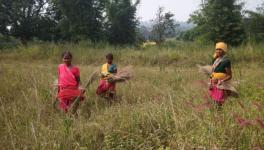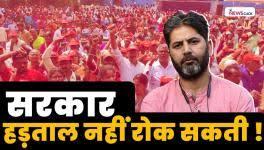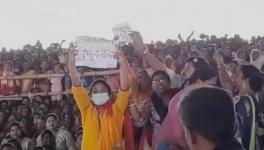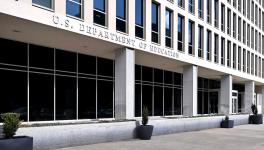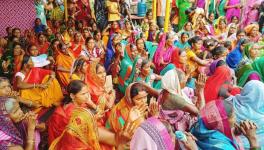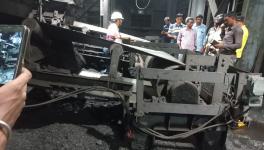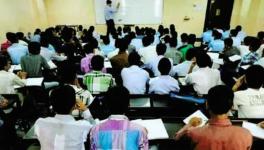‘Digital Divide’ a Curse for Jharkhand’s Tribal Children as They Forget Past Learnings
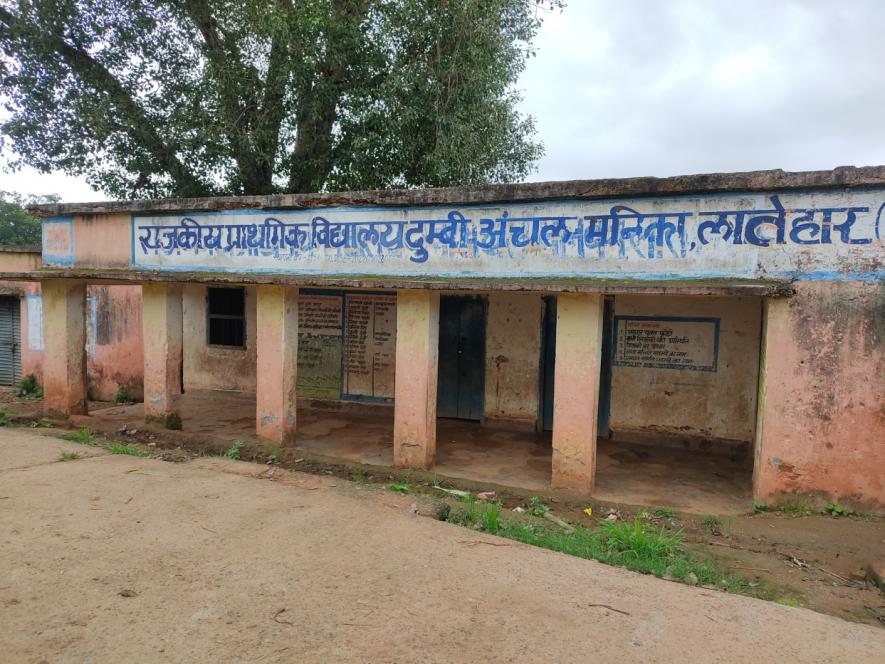
Dumbi Primary School/ Latehar/ Jharkhand
“I wish doors of the primary school are unlocked for our children after being closed for 16 months and if it does not happen the younger generation will permanently fall out of the education system,” says Dhaneshwari Devi of Dumbi village in Latehar district of Jharkhand. Dumbi, a tribal hamlet located 130 km west of Ranchi, is a Naxal-affected conflict zone and faces the continuing grip of backwardness.
Dhaneshwari stresses the need to re-open schools because her son Sujit, a turd standard student, is witnessing a qualitative downfall in studies. He has forgotten to read his school textbooks as the daily routine of classes is affected.
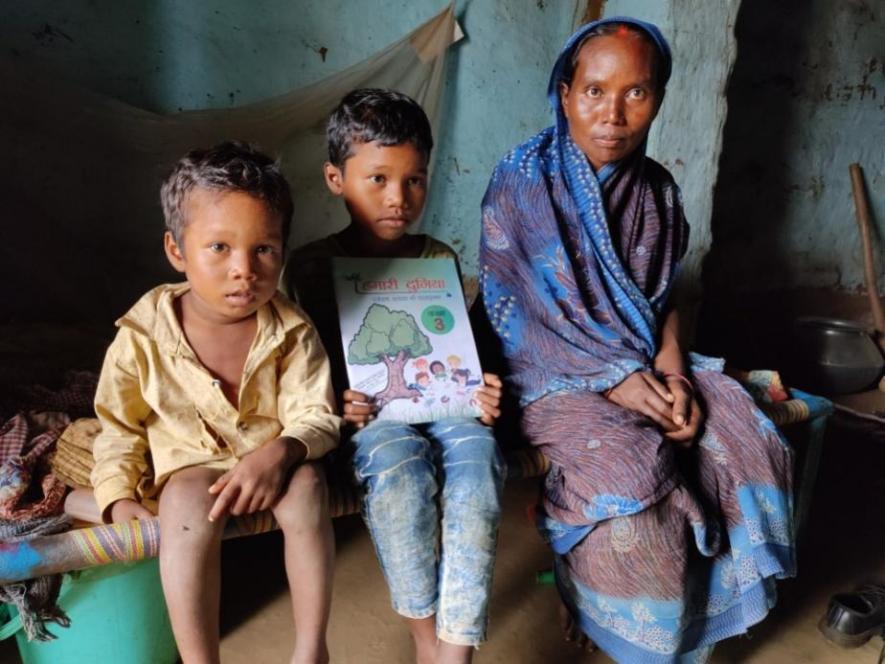
Sujit with his mother in Dumbi, Latehar
Sujit’s situation is an outcome of the indefinite school closure as a result of the far-stretched COVID-19 pandemic. Schools across India have been closed since the pandemic hit the country in March 2020.
Poor rural families like Dhaneshwari’s are also deeply affected by the digital divide as classes have become online. Dhaneshwari’s husband who works in Bangalore has been unable to send remittances home this season. So, the question of affording a smartphone for online classes does not arise for them. For children like Sujit, gone are the days of studying in the school, physically present before the teacher in the classroom; instead, the children are loitering every day in groups.
As the second wave of the pandemic appears to be receding, state governments across India have lifted restrictions and lockdowns. In view of this, many have recently raised the question why the schools were still closed. On July 19, the Director of the All India Institute of Medical Sciences (AIIMS) in New Delhi said India should consider reopening schools in a staggered manner.
Following this, on August 4, Dr Katherine O' Brien of the WHO Covid-expert committee said that schools should be opened for children. She also underlined, "There is no requirement for teenagers or kids to have to be vaccinated in order to attend school… It's about the protection of the adults around them, who are the ones who really have more risk of disease."
With an approximate strength of 300, Dumbi village has a mixed population of Schedule Castes and Schedule Tribes with most of them engaged in daily-wage work for livelihood. The challenge of affording education is huge for them. Issues such as the lack of awareness on e-learning, lack of devices like smartphone, computer, laptop and the inability to buy ‘data packs’ hound them, often leaving families exasperated.
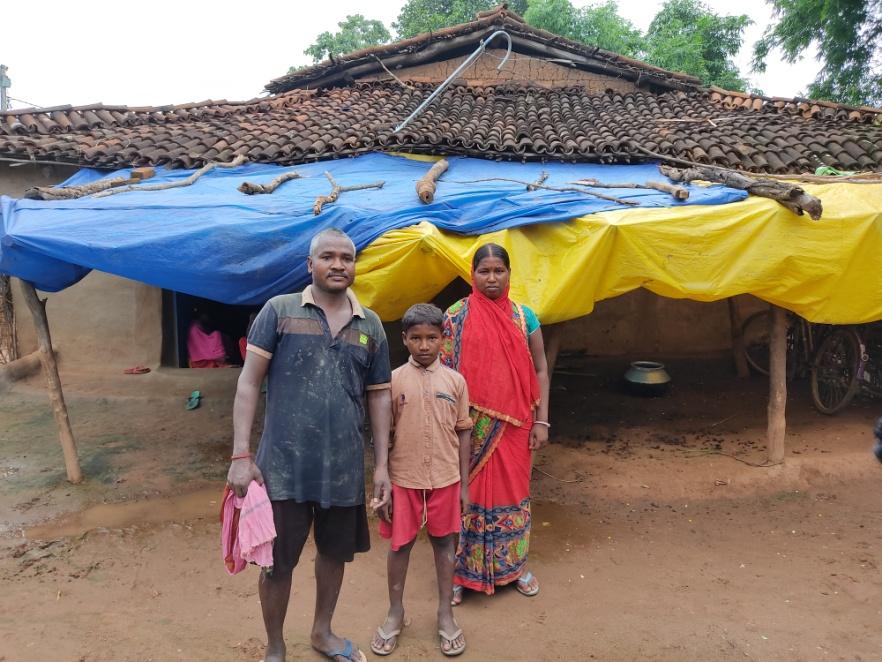
Subham with his parents in Dumbi, Latehar.
Subham, a fifth-standard boy, was the only child in the hamlet who could fluently read lines from his textbook. But he also finds the technology-aided study difficult to cope with. Financial crunch is hindering young aspiring minds, says his father Ram Jatan who returned from the fields after sowing paddy saplings. Subham’s parents are now looking for ways to restart his discontinued school education.
The pandemic has brought darkness in the lives of rural children, as the school doors have been closed, says Janardan Ghasi, a labourer, while speaking to NewsClick. Ghasi said he spent Rs 1,000, a significant sum for him, for his son Anand to get private tuition at the block town of Manika. Anand was elevated to class four at the start of this year but then he had to skip tuition as was unaffordable.
As per former Union education minister Prakash Javadekar’s tall claims last year on the floor of Parliament, no one had been deprived of education because of online facilities. However, such a claim falls flat with continuous reports on the outrageous exclusion of socially marginalised children from online education.
Dumbi Primary School teacher Mohammad Alimuddin, who was deputed in December 2020, expresses deep concern over the school’s closure. He told NewsClick that children have been struggling to do basic book readings after the disruption due to the lockdown. “It’s having a life-long affect on the memory of delicate minds who hail from underprivileged sections of the society. They have forgotten all learnings and that cannot be undone,” he added.
“Immediate opening of school was the need of the hour while following the pandemic guidelines. At least one standard could be taught on each day maintaining social distancing. This should be on the government’s agenda,” suggests Alimuddin.
The village has 62 children enrolled in the primary school and nearly all have forgotten basic learnings. In Jharkhand, schools also act as a linchpin for efforts to improve nutrition by providing students cooked meals and eggs; this method of nutrition delivery, too, is on hold.
The villagers say that the state government has attempted to lend books, dry ration like rice, and cash but these hardly suffice compared with their requirements. Also, such attempts fail to enrich literacy and learning in the absence of schools.
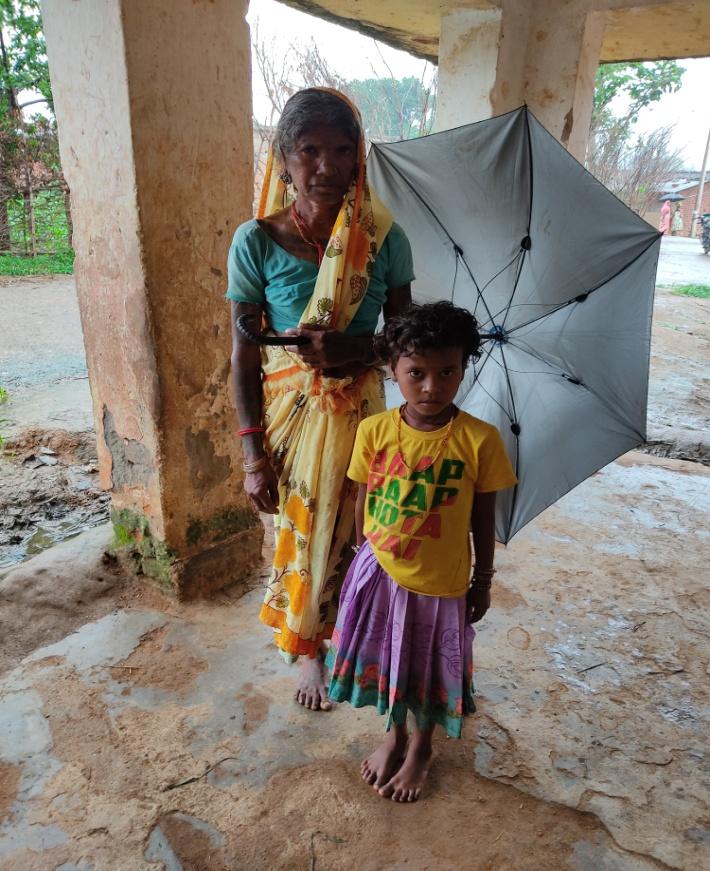
Kusum/Dumbi/Latehar
Kusum, a seven-year-old girl, has accompanied her grandmother to the primary school premises to meet the school teacher who was scheduled to informally visit the village. However, they return dismayed as the teacher failed to turn up. On being asked about her studying conditions, her grandmother appeals to the state government to rescue the “drowning future of children” as a complete detachment from formal education will have a long-lasting impact on their lives.
The NSSO 2014 (National Sample Survey Organisation) report highlights that 32 million children were already out of school before the pandemic — the majority of them belonging to the socially disadvantaged classes in the country. This is expected to worsen in coming years.
India-based welfare economist Jean Dreze undertook a door-to-door survey of primary school children in Dumbi to analyse the school closure impact. In an exclusive conversation with NewsClick, he said: “Closing schools for as long as 16 months without even trying to reach out in some way to the children who are unable to study online, is a monumental injustice. This suspension of schooling has snuffed the only hope that poor parents have of some improvement in their children's lives. As Dumbi's experience illustrates, many poor children seem to be forgetting whatever little they had learnt at school earlier. They may never be able to catch up, if they go back to school at all.”
Piyush, a fifth-standard student, dressed in a light yellow shirt and maroon pants, is helping his father by spreading sand with a hoe in front of his house. His studies, too, have been affected by the shut-down of the school.
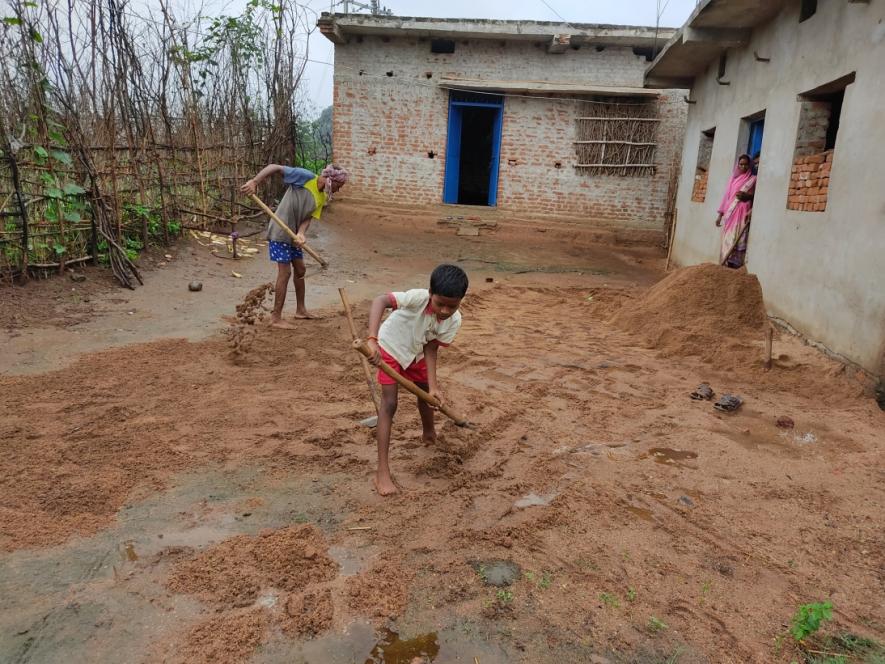
Piyush as child labour/ Dumbi
If schools were open, his mother Nemi Devi says, Piyush would have learned something new each day and would at least receive one meal. His habit of daily studies has also gone for a toss. The non-serious environment for studies has pushed him to share the family’s workload. They do not have the money to buy a smartphone even if the schools continue to be closed. His mother is an agriculture labourer and father Mahavir used to earn Rs 250 at a brick kiln before he lost his job during the pandemic.
The United Nations estimates that at least 24 million children will drop out of schools and that millions could be sucked into child labour due to the pandemic. School-going boys are indirectly engaged in household work while girls are slipping into everyday work along with the women of households. Since the pandemic, school enrolments have also diminished. The cost of school closure is surging every day with irreversible impact on the lives of the nation’s most vulnerable population. With further delay in resuming physical classroom education, the implications would only worsen.
Get the latest reports & analysis with people's perspective on Protests, movements & deep analytical videos, discussions of the current affairs in your Telegram app. Subscribe to NewsClick's Telegram channel & get Real-Time updates on stories, as they get published on our website.









